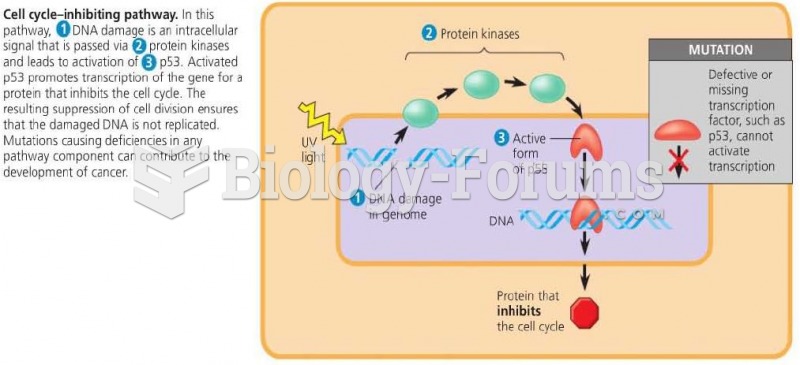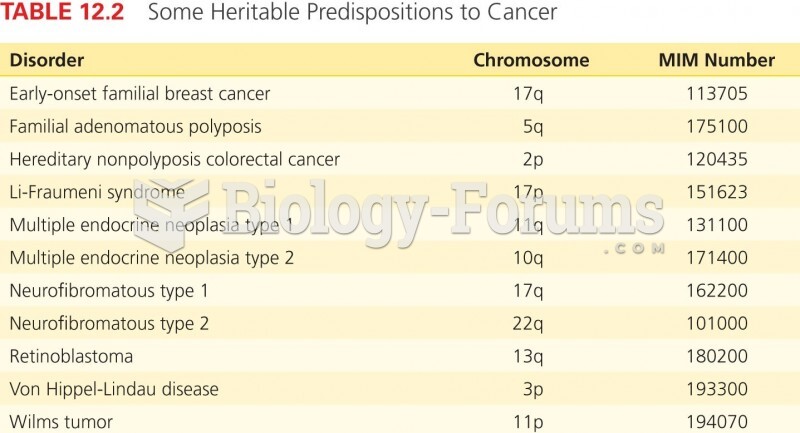Answer to Question 1
Answer: A
This client is in the earliest stages of cancer treatment, with removal of the primary tumor about to take place. The nurse's role is to support this client's optimism and help in fighting the disease by teaching about nutrition and other supportive actions the client can take to minimize complications of treatment. While the prognosis may be poor, the outcome is not absolute, and the client's wish to do whatever is necessary to survive should be supported. Emphasizing the low survival rate, encouraging the client to prepare for death, and talking with the family about the client's unrealistic expectations would not support the client's optimism.
Answer to Question 2
Answer: C
Yearly mammography for all women over the age of 40 is encouraged, as it decreases the mortality from breast cancer. Breast self-exam is no longer recommended for all women. The American Cancer Society recommends that young women who choose to do breast self-exams have their technique validated by a healthcare practitioner at a yearly physical exam. The earlier a lump is discovered, the greater the effectiveness of treatment. Discussing a family history of breast cancer would be part of the annual breast exam performed by a healthcare provider. It is inappropriate for women in this age group to have a clinical breast exam every 5 years.







